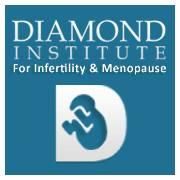What is Embryo Donation?

For couples experiencing infertility issues, embryo donation is another option that may help them achieve the dream of having a family. Similar to adopting a child, couples who have frozen embryos left over after in vitro fertilization (IVF) treatment can opt to donate them to other couples struggling to conceive. As this is not usually an option most couples seek out upfront, the following information can help you decide whether the process is right for you.
Where Do Embryos Come From?
Couples with embryos remaining after an IVF procedure have a few options. While they can continue to store the embryos, they will need to cover storage costs. They may also choose to discard the embryos or donate them for research purposes. Doing so can be difficult for many couples, even if they don't intend on ever using their embryos. Another reasonable option is donating the eggs for couples facing similar struggles with their fertility.
Frozen Embryos Can Be Viable For Decades
Frozen embryos remain viable for many years, or even decades, after they’ve been frozen. In one case, a woman conceived using an embryo that was frozen in 1992. There are no health risks involved in cryopreservation and the process doesn’t increase the chance of birth defects or other abnormalities. It also allows couple to help others faced with the same infertility struggles as they did, which can be rewarding.
Other Considerations
 With traditional adoption, parents must decide how and when to convey information to the adopted child on their origins. The same consideration must be made with embryo adoption, and couples must also decide how to talk with friends and family about the process. It’s recommended that couples disclose that the baby is not biologically theirs when they’re ready to do so, especially if there is a potential for differences in physical characteristics. Also, popular genetic testing platforms like 23andme and Ancestry make it easy for offspring to now determine their ethic makeup and it is important for parents to be able to have these discussions and their children.
With traditional adoption, parents must decide how and when to convey information to the adopted child on their origins. The same consideration must be made with embryo adoption, and couples must also decide how to talk with friends and family about the process. It’s recommended that couples disclose that the baby is not biologically theirs when they’re ready to do so, especially if there is a potential for differences in physical characteristics. Also, popular genetic testing platforms like 23andme and Ancestry make it easy for offspring to now determine their ethic makeup and it is important for parents to be able to have these discussions and their children.
Couples will need to determine the relationship they want to have with the donor. Some embryos are donated anonymously, which means the identity of the donor is never disclosed. There is also approved donation, which allows the recipients to access information on the donor. With an open donation, both parties are free to contact each other as they see fit.
On the cutting edge of infertility treatments in Millburn, NJ, doctors at the Diamond Institute for Infertility & Menopause can help you determine whether embryo donation is right for you. With more than four decades of experience, Dr. Matan Yemini and Dr. Ndidimaka Onwubalili apply their considerable experience to couples struggling to conceive. Services include surrogacy, artificial insemination, egg freezing, and pre-implantation diagnostic testing. If you have questions about how your insurance will apply to treatment, their insurance specialists can help you gain clarification. Call (973) 761-5600 to schedule a consultation or visit the website to see the full list of services.
About the Business
Have a question? Ask the experts!
Send your question

